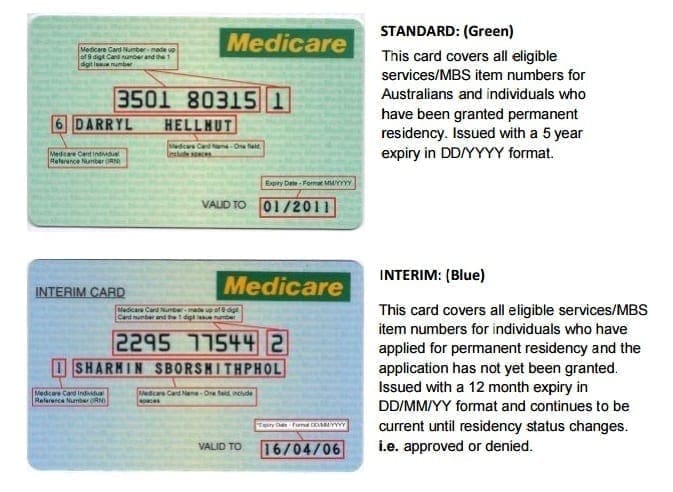Healthcare in Australia through a Filipina’s eyes is a wild ride! Today, I’m sharing my journey as a Filipina expat who has survived the chaos of Philippine hospitals and navigated the maze of the Australian healthcare system. Buckle up, because it’s going to be an interesting comparison
When I first moved to Australia, I thought I was stepping into a healthcare utopia. Medicare? Sounds fancy. But as a Filipina used to the Philippines’ bustling, borderline chaotic hospital scenes, Australia’s system was… let’s say, an adjustment.
Here’s the thing: In the Philippines, you walk into an ER, and it’s like a family reunion—your entire barangay could fit in one waiting room, and the hustle is real. But in Australia? You walk in, and it’s so quiet you wonder if you stumbled into a spa by mistake. Polite nods, a perfectly sterile waiting area… then the reality hits: “Sorry, love, fully booked.” Yep, get comfy, because you’ll be waiting for what feels like a solid eternity.
After hours of waiting, you think, “Finally, some top-notch treatment!” But nope, Aussie healthcare has a special kind of charm: Panadol. That’s right, folks, whether you’ve got a fever or your arm’s about to fall off, they hand you a Panadol and a “She’ll be right, mate!” In the Philippines, they’re running tests left and right, checking every possible angle. But here? Nope, Panadol is the MVP. I’m starting to think I should invest in shares.
Now, don’t get me wrong, the system works—if you can handle the laid-back approach. It’s affordable and gets the job done. But sometimes, as a Filipina, you miss the action-packed chaos of Philippine hospitals, where at least you know things are moving. In Australia, you’ll just have to settle in and let Panadol do its magic.
Medicare Basics
Medicare is Australia’s public healthcare system, offering free or subsidized treatment. It provides access to a wide range of medical and hospital services for Australian citizens, permanent residents, and some visitors from countries with reciprocal healthcare agreements. Services include visits to GPs and specialists, tests, scans, and most surgeries in public hospitals. However, it doesn’t cover ambulance services, most dental services, or elective procedures in private hospitals without a fee.
Let’s talk about Medicare—the crown jewel of Australia’s healthcare system. Everyone here acts like it’s the ultimate gift to mankind, and sure, it’s free for most things, but don’t get too excited, mate. You’ll get access to basic medical services, which sounds great until you realize “basic” means waiting three weeks to see a GP for a 5-minute consultation, only to be told, “Take a Panadol and rest up!” Free? Yes. Fast? Not a chance. But hey, at least your wallet stays intact while your patience wears thin.
And don’t get me started on specialist appointments. Need to see someone other than a GP? Good luck! You’ll probably have time to knit a blanket while you wait for that referral. But once you’re finally in, it’s like winning the Aussie healthcare lottery. Overall, Medicare’s like that friend who promises to show up and help but takes their sweet time—when they do arrive, it’s good, but getting there is half the battle.

My Experience
During my first GP visit, I was impressed by the efficiency. No long waits, and the doctors were professional. The best part? Most services are bulk-billed, meaning no out-of-pocket costs. Bulk billing is still available in 2024, where healthcare providers get the full consultation fee directly from Medicare, leaving no costs for patients with a Medicare card. However, not all providers bulk bill, and some may charge a gap fee. Always check with your provider before your appointment.
But it’s not all rosy. My experiences with some non-Aussie doctors haven’t been great. They often seem rushed and less attentive, which can feel like they’re not providing the care patients need. Some Aussies feel these doctors are more focused on making money, cutting consultations short. I had a Sri Lankan doctor dismiss my diabetes concerns despite my family history and an Afghan doctor who seemed indifferent to my health worries. While Australia’s healthcare system is excellent overall, some practitioners take advantage of it.
ALSO READ: Dual Citizenship for Filipinos in Australia: Exploring the Pros and Cons
Eligibility for Medicare as an expat in Australia
In Australia, eligibility for Medicare is primarily based on citizenship, permanent residency, or specific visa categories. Eligibility criteria for expats can be complex and subject to change, so please make sure you have a thorough understanding of your visa restrictions before emigrating.
Luckily for some, Australia has reciprocal healthcare agreements with several countries, including the United Kingdom, New Zealand, Ireland, Sweden, the Netherlands, Finland, Belgium, Norway, Slovenia, Italy, and Malta. Under these agreements, visitors from these countries can access medically necessary care through Medicare during their stay in Australia. This is not the same as full access to Medicare, but it covers anything urgent.
As you might expect, Australian citizens and permanent residents are eligible for Medicare.
Citizenship or permanent residency in Australia can access the full range of Medicare benefits. However, expats who hold certain temporary visa types may be eligible for limited Medicare coverage. For example:
Temporary residents from countries with a reciprocal healthcare agreement: If you are a temporary resident from a country with a reciprocal healthcare agreement (such as the United Kingdom or New Zealand), you may be eligible for Medicare coverage during your stay in Australia.
457/482 Visa Holders: Temporary work visa holders (such as those on a 457 or 482 visa) are typically required to maintain adequate private health insurance as a condition of their visa. However, they may be eligible for Medicare for medically necessary treatment that arises during their waiting periods for private health insurance coverage.
Student Visa Holders: International students with a valid student visa (subclass 500) are generally required to obtain Overseas Student Health Cover (OSHC) as a condition of their visa. OSHC provides limited coverage for certain medical services, but it is not the same as full Medicare coverage.
Pls read: What is Bulk Billing in Australia and How Does it Work?

Private Health Insurance in Australia
Expats in Australia may consider private health insurance because it offers broader coverage compared to Medicare. Benefits include access to private hospitals, choice of doctors or specialists, shorter waiting times for elective surgeries, and coverage for dental, optical, and physiotherapy. Plus, if you’re a high-income earner without private health insurance, you might be hit with the Medicare Levy Surcharge—a tax you can dodge with the right insurance plan.
Major health insurance providers like Bupa, Medibank Private, and HCF are popular choices. For international options, Allianz Care, Regency for Expats, and Cigna are highly recommended. Always read the fine print on your policy, or you might find yourself without coverage when you need it most—like realizing too late that your insurance doesn’t cover kangaroo-related injuries! 🦘😉
Ambulance Services in Australia
In an emergency, you can call an ambulance by dialing Triple Zero (000). Ambulances are staffed by professional paramedics who provide essential medical care and transport to the nearest medical facility. Generally, ambulance services are free for residents but may incur fees for non-residents and visitors. Make sure your international health insurance covers ambulance services, or you might end up with a hefty bill just for a quick ride!

Finding a GP (doctor) in Australia
Finding a doctor in Australia is a bit like dating. You’re looking for that special someone who gets you, listens to your woes, and occasionally pokes you with a needle (for medical reasons, of course). Your doctor in Australia will generally be referred to as a GP (general practitioner).
Now, it’s crucial to find a GP you can trust, because they’re the ones who’ll be navigating you through the labyrinth of healthcare, referring you to specialists, and acting as a gatekeeper for various treatments. They’re your first port of call when you’re feeling under the weather or when you’ve decided to take up juggling chainsaws as a hobby.
If you’re someone who takes prescription medication in your home country, you’ll need to quickly find a GP in Australia to ensure you can continue your medication. Remember, drug names can vary from country to country, so your ‘Flu-B-Gone’ might be called ‘Sniffle-Stopper’ down under.
ALSO READ: Crazy Aussie Slang Words You Need To Know Now
To sign up with a doctor in Australia, here are some steps you can follow:
Research and find a doctor: Use online directories, recommendations from friends or family, or local healthcare resources to identify doctors in your area. You can also check the websites of medical clinics or practices to gather information about the doctors working there. It’s like online dating, but for doctors.
Check availability and make your first appointment: Contact the doctor’s office or clinic to inquire about their availability and schedule an appointment. You may need to provide some basic information such as your name, contact details, and reason for the visit. No need for pick-up lines here!
Prepare necessary documentation: Depending on the doctor’s requirements, you may need to bring certain documents to your first appointment. This might include your Medicare card, health insurance information, relevant medical records, and any medications you are currently taking. It’s like packing for a first date, but less stressful.
Attend the appointment: Arrive at the doctor’s office or clinic at the scheduled time. Be prepared to discuss your health concerns, medical history, and any symptoms or questions you have. The doctor will evaluate your condition, provide appropriate advice or treatment, and may refer you to specialists if necessary. It’s like a first date, but with less small talk and more stethoscopes.
Establish an ongoing relationship: If you are satisfied with the doctor’s care, consider establishing an ongoing relationship for your healthcare needs. It’s generally beneficial to have a regular GP who can monitor your health, provide preventive care, and coordinate any necessary referrals or specialist consultations. And the best part? No need to worry about who’s going to pick up the check!
Mental health in Australia
Mental health care in Australia is like a well-stocked buffet – there’s something for everyone. From psychologists who’ll help you untangle the spaghetti of your thoughts, to psychiatrists who can prescribe the right sauce (medication) to spice up your mental well-being. And let’s not forget the mental health social workers, the unsung heroes who help you navigate the lasagna layers of life’s challenges.
The approach to mental healthcare in Australia is holistic, kind of like a yoga class for your mind. It’s all about prevention, early intervention, and ongoing management of mental health concerns. Plus, there’s a big push to promote mental health awareness and reduce the stigma associated with seeking help. So, whether you’re dealing with a case of the ‘Monday blues’ or something more serious like depression or anxiety, remember it’s okay to ask for help.
Now, let’s talk about Medicare, the superhero of Australian healthcare. It provides subsidized access to mental health services through the Better Access initiative. Think of it as your VIP pass to mental wellness. With a mental health care plan from a GP, you can receive Medicare rebates for up to 20 sessions per calendar year with an eligible psychologist, social worker, or occupational therapist. These sessions can include everything from assessment and therapy to counseling. It’s like having a personal trainer, but for your brain.
Medicare also covers a portion of the fees for psychiatric services provided by psychiatrists. So, if you need a bit more help, Medicare’s got your back. This makes mental health care more affordable and accessible to Australians, including eligible expats residing in Australia. So, if you’re an expat, it’s worth exploring your eligibility for Medicare and understanding the specific requirements and limitations associated with mental health services coverage.
And if you’re looking for a bit more coverage, private health insurance may provide additional benefits and options for mental health care beyond what is covered by Medicare. It’s like upgrading from economy to business class on your journey to mental wellness.
ALSO READ: Moving to Australia? 6 Pros & Cons of moving overseas
Alternative Healthcare Options in Australia
Navigating the landscape of healthcare in Australia can be challenging, especially when you’re unsure if your condition requires immediate medical attention. Fortunately, there are several alternatives to visiting a GP or an emergency department.
If your symptoms are mild or you’re uncertain about the need for serious medical intervention, consider the following options:
1. Healthline Services: Healthdirect and nurse helplines are excellent resources for non-emergency situations. These services provide phone-based advice from registered nurses who can guide you on the appropriate course of action.
2. Pharmacies: Pharmacies, staffed by qualified pharmacists, are more than just places to pick up prescriptions. They offer valuable guidance, over-the-counter medications, and health checks that can help manage minor health concerns.
3. After-Hours Medical Services: For urgent needs outside regular clinic hours, after-hours medical services are available. These services cater to patients who require immediate attention but do not have a life-threatening condition.
4. Telehealth: With the advent of digital technology, remote consultations with healthcare professionals are now possible. Telehealth services allow you to consult with healthcare professionals from the comfort of your home.
CONLUSION:
Healthcare in Australia is like a laid-back Aussie BBQ—relaxed, slow, and occasionally leaves you wondering if it’s enough. But hey, at least I’m not drowning in medical bills. And I’ve got enough Panadol to last a lifetime.
Remember, in emergencies, it’s crucial to visit the emergency department. However, it’s important to reserve this valuable service for situations that truly require it. By considering these alternatives, you can ensure that you receive the appropriate level of care while also making efficient use of Australia’s healthcare resources.
If you’re curious to learn more about navigating healthcare as an expat, check out The Australian health system | Australian Government Department of Health and Aged Care for additional insights.











